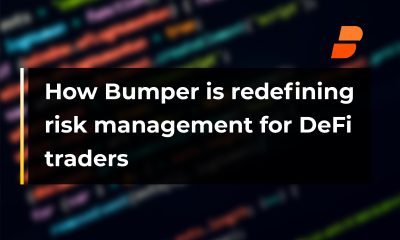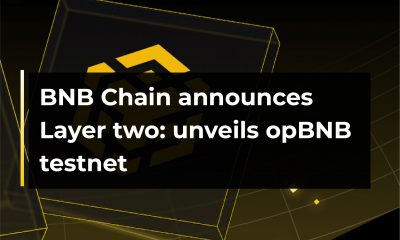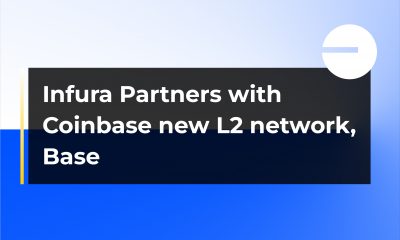FEATURED
Chronicle Labs unveils decentralized Oracle protocol for Web3 dApps

Chronicle Labs, led by Nik Kunkel, announced at the Permissionless Web3 event of their pioneering decentralized oracle protocol. He noted that Chronicle Labs is still focused on making the best Oracle available for the industry as a pioneering organization.
Decentralized Oracle Protocol (DOP) is a type of blockchain technology that allows smart contracts to interact with data and systems outside of the blockchain in a secure and decentralized way.
It acts as a bridge between on-chain and off-chain data sources, enabling smart contracts to access real-world data and execute actions based on that data.
DOP is a critical component of many decentralized applications (dApps) and serves as a wide range of use cases, including decentralized finance (DeFi), and supply chain management, among others .
Speaking to the audience at the event, he started by shedding light on Chronicle Labs’ history, which started in 2016, when, in collaboration with several members of the Chronicle team, they laid the foundation of the first decentralized oracles on the Ethereum network.
He noted that these oracles were released in June 2017, coinciding with the launch of the precursor to the DAI stablecoin. Notably, this milestone established Chronicle Labs as the creators of not only Ethereum’s first oracles but also one of the longest-running and battle-tested oracle protocols in the entire crypto space.
Furthermore, he noted that Chronicle Oracles currently secure over six billion dollars in assets, although, at one point, they were safeguarding nearly twenty billion dollars, making Chronicle the second-largest Oracle protocol in terms of total value secured.
Problem with current Oracles
The founder explained the limitations of existing oracle solutions, likening them to fortune tellers. Traditional oracles provide data without context, making it challenging for users to trust the information they receive.
Additionally, these oracles often consume an exorbitant amount of gas, which, combined with volatile gas prices, results in high annual costs. In effect, he said that this renders high-quality Oracle services inaccessible to all but the wealthiest protocols.
Why Chronicle’s solution
Nik then introduced the Chronicle’s revolutionary protocol, designed to address the flaws in the current oracle landscape. He noted that the protocol is built on two basic principles – verifiability and scalability.
He defined verifiability as the combination of transparency and legibility. Chronicle Labs believes in providing not just transparent but also legible data. It aims to offer end-to-end traceability of data, akin to the “farm-to-table” concept.
The speaker said that users should not only see the final data but also understand its origin and the process that led to it. This transparency allows anyone to verify the accuracy of the data independently.
He continued by saying that Chronicle Labs tackled the scalability problem by developing an innovative in-house algorithm called “Optimistic Schnorr,” which significantly reduces gas consumption on both Layer 1 and Layer 2 blockchains.
This achievement aligns with their goals of maintaining a single implementation across all chains, decoupling Oracle update gas costs from the number validators, and minimizing overall gas costs.
He added that Chronicle employs MEV (Miner-Extractable Value) to incentivize decentralized network participants, such as Challenger Bots, to monitor and help preserve a secure Oracle network.
At the end of the presentation, he called on the audience to start using Scribe with their Dapps and asked other professionals who wanted to join the team to check for available opportunities on its website.
Read also; How Beam is using account abstraction to transform on-chain payment
























